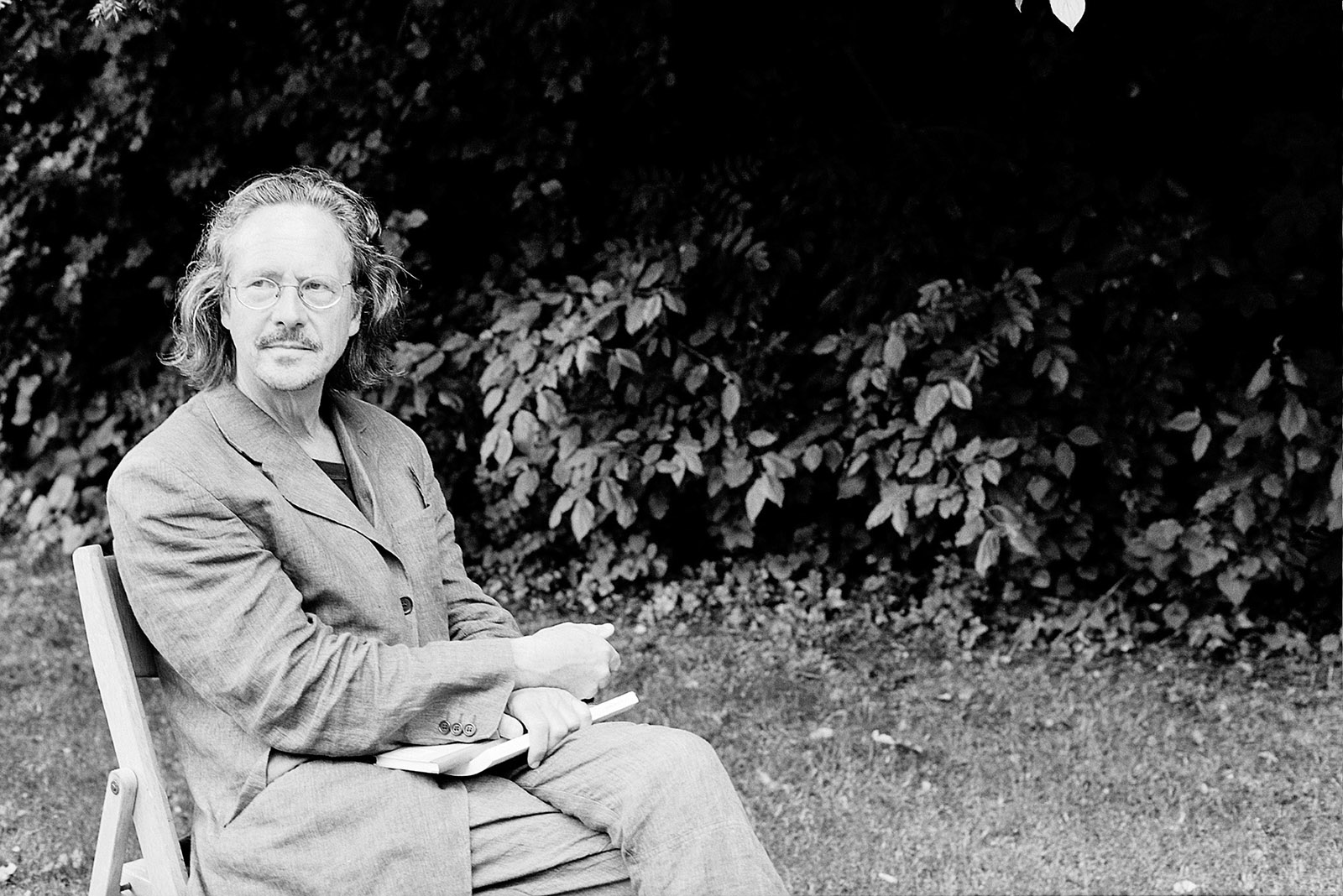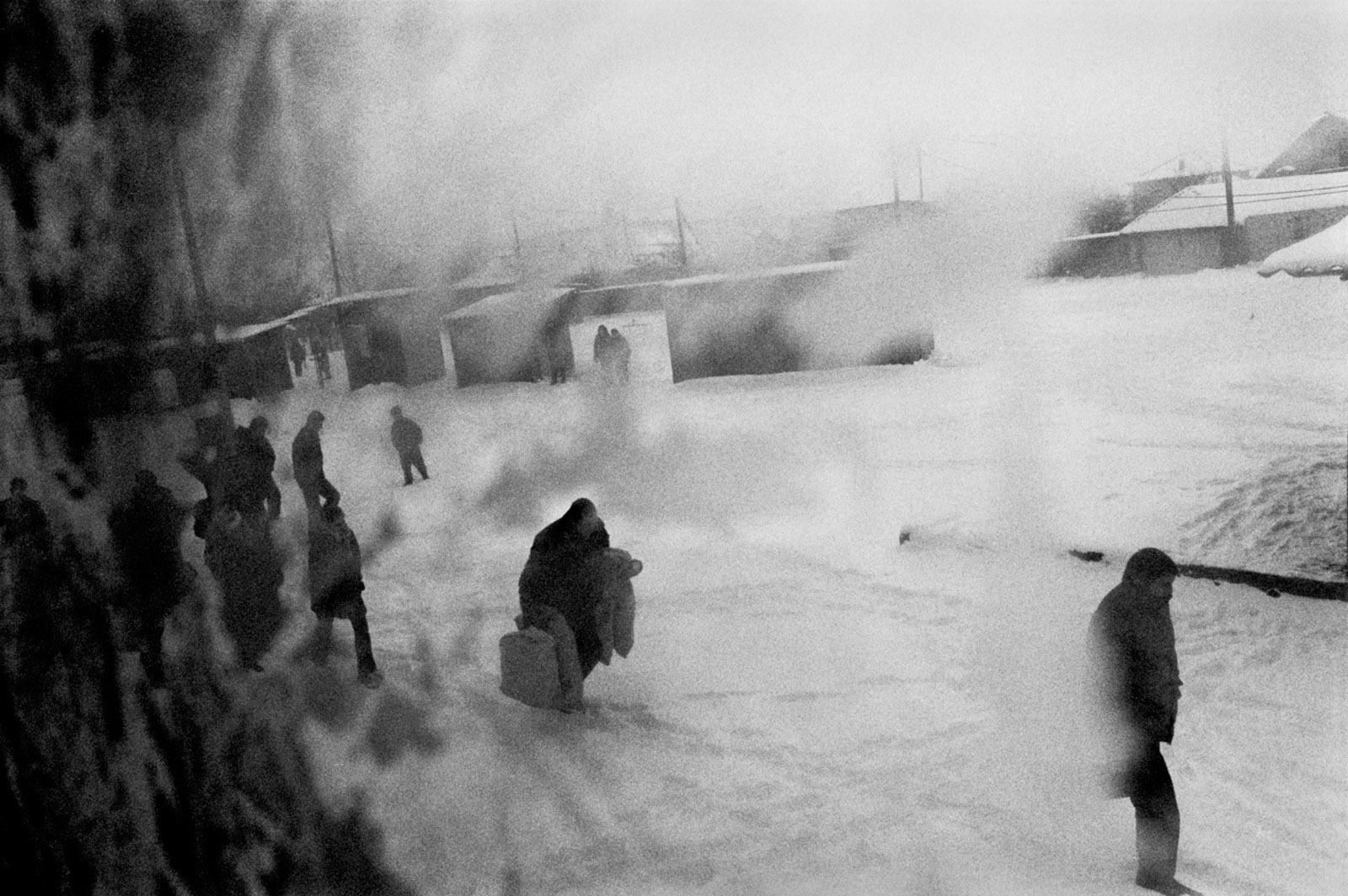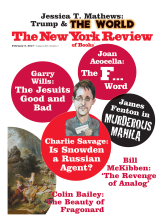The Moravian Night might seem like the inevitable English title for Peter Handke’s 2008 novel Die morawische Nacht, but it is actually rather misleading. Moravia is the eastern region of the Czech Republic, whose largest city is Brno; Mähren in German, it is called Moravia in English (and Latin) after the Slavic name of its major river, the Morava. But Handke’s title does not use the word mährische, and in fact it is not Moravia that he is writing about in this book. Instead, he is referring to a different Morava River, far to the south, in the heartland of Serbia. It is on this river that the story begins and ends; here is where the unnamed protagonist of the book, known only as “the former writer,” has taken up quarters on a houseboat.
To most American readers, the difference between two Central European rivers with the same name might seem unimportant. But in this case, it is crucial to recognize that Handke is writing about Serbia and not Moravia. For Handke, one of the German-speaking world’s leading writers since the 1960s, is now perhaps even more widely known as an apologist for the Serbian regime of Slobodan Milošević. Starting in 1995, when he traveled to Serbia in the last days of the Yugoslav civil war, Handke has written and spoken voluminously in defense of the Serbs, who are generally—and in his view, unjustly—regarded as the instigators of a genocidal campaign of ethnic cleansing. The Moravian Night ranges widely over the continent of Europe, as the former writer travels from the Balkans to Spain and back, but at its core is a defense of his highly idiosyncratic vision of what Serbia, and the Balkans in general, mean or ought to mean.
It is still mysterious just why Handke decided to cast himself as the Western world’s most vociferous defender of Serbia’s actions during the Yugoslav war. At the time Milošević died, in 2006, the deposed Serb leader was in prison in The Hague, where he was being tried for genocide and war crimes by the International Criminal Tribunal for the former Yugoslavia. This did not deter Handke from attending Milošević’s burial, back home in Serbia, and even delivering a speech, in which he mused: “I don’t know the truth. But I look. I listen. I feel. I remember. This is why I am here today, close to Yugoslavia, close to Serbia, close to Slobodan Milošević.
The willed ignorance of this endorsement—“I don’t know the truth”—is the keynote of Handke’s writings on the subject, starting with his controversial 1996 book A Journey to the Rivers: Justice for Serbia. (The original German title of this brief text names four rivers, including the Morava.) Here Handke records a brief visit to Serbia in the waning days of the Yugoslav war, just before the signing of the Dayton Peace Accords. The war had made the world familiar with previously obscure places like Vukovar, a Croatian city besieged by the Serbs for three months, at the cost of two thousand lives, and Srebrenica, a Bosnian city where Serbs massacred eight thousand Muslims, the worst war crime in Europe since 1945. These events were very recent at the time of his visit—the Srebrenica massacre took place in July 1995, just three months before Handke’s arrival—but he displays no interest in investigating them. Instead, he issues unsubstantiated challenges to the truthfulness of all the reporting on these events: “Why such a thousandfold slaughtering? What was the motivation? For what purpose?” he demands, as though he has seen through a conspiracy that has taken in the rest of the world.
Really, however, what the Serbs did or didn’t do is not what matters to Handke. What he is doing in A Journey to the Rivers is, rather, evolving a myth, which is immune to factual rebuttal because it operates on a “deeper” level than the daily news. And it is the news—newspapers, journalists, and pundits in America and Europe—that Handke sets out to attack, much more than Croats or Bosnians, for whom he seems to have at least some compassion. Clearly, the Yugoslav war attracted him because it allowed him to set his own intuitive and literary perception of Serbia against the images purveyed by the media, which he sees as shallow and inauthentic.
This opposition between the novelist and the journalist has a long history in German and Austrian literature, and it has often been involved with anti-Semitism. As the scholar Paul Reitter has shown, the litterateur, the feuilletonist, was often seen as the rootless Jewish opponent of the rooted German artist. This makes it notable that most of the writers Handke attacks by name in A Journey to the Rivers are Jewish—in particular, Alain Finkielkraut, André Glucksmann, and Bernard-Henri Lévy, the French “new philosophers” who were among the most vocal condemners of Serbian war crimes. To Handke, these belong to a new species of “contemporary philosophers who are everywhere and nowhere”—one might even say, rootless cosmopolitans. They stand in pointed contrast to the Serbs themselves, whom Handke praises in historically loaded language as a Volk: “an entire, great people, Volk, that knows itself to be scorned apparently throughout Europe, and experiences that as insanely unjust.”
Advertisement
Is Handke, an Austrian born in 1942, using the Serbs here as a surrogate for the Austrians and the Germans themselves—both “great peoples” who during his formative years were “scorned throughout Europe” for their war crimes? Is he trying to recuperate certain ways of thinking about nationhood—as something organic, rooted, mystical—that were banished from respectable discourse in postwar Europe? Certainly Handke is doing with the Yugoslav war what Thomas Mann did in World War I, turning a historical event into a parable about the superiority of Kultur to Zivilisation, which parallels the superiority of the artist to the mere litterateur.
This complex of ideas forms the background to The Moravian Night, and the book, in all its portentousness and grandiosity, is best understood as a restatement of Handke’s myth of the Balkans. This involves a nostalgic resistance to modern life, progress, and homogenization—in short, to everything associated with the European Union and the borderlessness it sponsors. In The Moravian Night, even the former Yugoslavia itself is not immune to the siren song of this Europe. Late in the novel, the “former writer” finds himself in one of Handke’s own favorite places—Slovenia, his mother’s native country, which he wrote about extensively in the novel Repetition.
In this book Handke pointedly avoids using the name Slovenia, however. In keeping with the book’s defamiliarizing language, he refers to it only as “the karst,” the region of the country that gave its name to a type of rocky landscape full of caves and sinkholes. Back when Slovenia was part of Yugoslavia, it stood politically as well as geographically outside the European mainstream. But now, the former writer finds it pathetically eager to join the banal prosperity of Central Europe: “In the entire karst and the surrounding area everything Balkan or even distantly reminiscent of the Balkans was frowned upon, from foods to clothing to music.”
If it is possible to be un-Balkan even in the Balkans, so too it is possible to be Balkan outside them. One might say that The Moravian Night is the story of a Balkan soul in search of Balkanness wherever he can find it. The episodic tale begins in a region of Serbia that Handke refers to as “the enclave,” a word that implies both isolation from and resistance to the outside world. But the real enclave in the book is the soul of the man known as “the former writer.” As we get to know him, we learn that he has diligently shunned every human attachment, especially to women, in the service of an exalted idea of what it means to be a writer. Handke, of course, is not a former writer but still a productive one; he has published four books in German since the appearance of The Moravian Night. In other respects, however, the character is meant to resemble his creator: he is an Austrian, a famous writer, and an inveterate wanderer.
Indeed, many of Handke’s books take the form of estranging travelogues, in which a solitary figure roams through an alienated landscape. This pattern can be traced all the way back to his early, reputation-making book The Goalie’s Anxiety at the Penalty Kick (1970), which is a kind of Austrian reimagining of Camus’s L’Étranger. Like Meursault, Joseph Bloch, the antihero of Handke’s story, is an ordinary sensual man who commits a murder in what seems like a fit of absentmindedness. Bloch leaves the scene of the crime and finds himself in a town near the southern border, where he wanders aimlessly from place to place, gradually losing his grip on reality and on language itself. In one passage, Handke replaces words with pictograms, to suggest how Bloch has ceased to be able to perceive the world in linguistic terms.
More than four decades later, in The Moravian Night, Handke is still suspicious of narrative, of words that tidy up and paper over the cracks in day-to-day reality. The novel begins as a group of unnamed friends gather on the houseboat of the former writer, in order to hear him recount his recent journey across Europe. This framing device connects the book with the most ancient kind of storytelling—a tale told face to face—and the idea of a journey and homecoming is inevitably archetypal, evoking the Odyssey.
Advertisement
Yet Handke wants nothing to do with the traditional instruments of storytelling, such as continuous plot and developed character. What interests him is the evocation of very brief moments, epiphanic instants when the trappings of the world fall away and a more immediate, intuitive truth shines forth. “Which time, which tense, which type of time was the operative concept for the former writer’s round-trip?” he asks early on, and replies that it can only be told in “seconds”:
Not minutes, not hours, and also not, definitely not, tenths and hundredths of seconds: only my, your, his, our, your, their moments, the quivering, crackling, alarming, reassuring seconds. The seconds that mean both what comes after something, what follows it, as well as the primary thing, the thing that precedes it, that combines what precedes and what follows. Praised and feared be the second.
As this suggests, Handke does not set out to give us a realistic account of a journey across Europe in the twenty-first century. Among the former writer’s audience there is one listener who regularly interrupts with banally factual questions, asking how much things cost, or what the weather was like, or how he got from place to place; but we are meant to understand that this is a low kind of curiosity. Such details are beside the point, in just the same way that it is not Handke’s purpose to visit any big cities or tourist destinations. What draws him are scenes of rural neglect and poverty, places forgotten by the onward march of capitalist progress. Not for nothing does he embark on his journey in an old, beat-up bus still painted with the defunct colors of the Yugoslav flag, a caravan of obsolescence.
The first stage of the former writer’s journey takes him to a village that has been the victim of ethnic cleansing. In this case, however, it is the Serbs—never named, but identifiable from various clues, such as their use of the Cyrillic alphabet—who were evicted from the village, rather than being the evicters. There is a powerful scene in which the Serbian passengers on the bus, stopping in the village that used to be theirs, mutely regard their former neighbors, who are presumably Kosovar Muslims. This is a highly tendentious identification of victim and victimizer, but it is partly redeemed by the way Handke deliberately refuses to openly identify either group. We are left with a timeless emblem of displacement—former neighbors turned unforgiving enemies, both attached to the same plot of ground. “Nation and hatred go together,” the bus driver observes.
This is an unimpeachably liberal sentiment; one of the goals of the European Union has been precisely to drain the national ideal of its pathos, in order to lessen the potential for hatred. But it is not really the spirit in which Handke writes about the question of nationality in The Moravian Night. His ideal is not the dissolution of national boundaries, but a harmony of nations each contributing its different timbre to a common chorus. This vision, which owes much to the early Romantic nationalism of Johann Gottfried Herder, is dramatized in a surreal way when the former writer finds himself at a tavern that is hosting a world convention of Jew’s harp players. The Jew’s harp is a primitive instrument that exists under different names in many cultures, and in this convention Handke seems to be creating his own model for a multicultural art:
Although the players had come from all corners of the globe as individuals, not as representatives of those corners, now, toward the end, each of them struck up a melody from his or her land of origin, plucking, striking, pounding out, not just any tune but one that stood for that country, such as a national anthem….
This conception of the nation depends, however, on each group retaining its integrity by remaining, in James Joyce’s famous formula, “the same people living in the same place.” That integrity is threatened by immigration, and when the former writer returns to his native town in Austria, he is disturbed to find a new population of Muslim immigrants there:
For an entire hour nothing homelike revealed itself to him, not in the dwellings and especially not in the inhabitants…. This village seemed to be inhabited by people of all human races except the one native to the region, so to speak. And the majority were…people who were, as would have been said at one time, “from the Orient.”
Crucially, Handke writes, “they were alien to him not because of their dress and appearance but because they were strangers to themselves in the region.” As immigrants, they are deracinated, unable to be their true selves. But this kind of deracination can also afflict people who stay home, if they choose to take the bribe of modern development and turn themselves into global citizens, or model Europeans.
This is what the former writer finds at the end of his journey, when he finally makes his way back to the real, geographical Balkans. The place he formerly cherished as an “enclave” is now full of people who look like every other European—wearing tracksuits, driving new cars. “At one time he had thought all these ‘new folk’ came from another planet, were extraterrestrials,” he reflects ruefully. “But no: they came from here and were firmly anchored in the here and now. The planet belonged exclusively to them.”
A world so homogenized and bourgeois has no place for the former writer, who conceives of his calling in the old, high, sacred terms. As he roams from place to place, he reflects on themes from his own life, including his inability to sustain a romantic relationship with a woman. This loneliness had something noble about it, since it was the result of his single-minded obsession with literature. Only now, late in life, when he has cast off the burden of writing, can the former writer begin to contemplate a true marriage of souls. Indeed, in the course of his journey he finds a woman—referred to only as “the woman”—who seems his perfect mate. Yet even she is sent away when the former writer’s wanderlust overtakes him, and on one occasion he either beats her up or fantasizes about doing so—the line between reality and imagination being always porous in this novel. All of this adds up to an idea of the great artist that is, if not actually misogynist, then certainly redolent of a stale masculinity.
Of course, Handke knows perfectly well every criticism that can be made of his politics and his art. He anticipates them in one of the oddest episodes in The Moravian Night, when the former writer encounters a man whom he decides to call Melchior, after one of the biblical magi who visit the infant Jesus. The magi came “from the East,” and this Melchior too is an Eastern figure of indeterminate ethnicity: Handke writes that he has “thick lips” and that when he prays he bows “to the east,…to Mecca as well as to Jerusalem.” This figure, who could be Arab or Jewish or African but is certainly not German, starts out seeming friendly, but then he rounds on the former writer and starts denouncing him. For Melchior, it turns out, is a journalist, an arch-journalist, and he is violently hostile to the former writer’s sense of his own calling as sacred:
We’ve had enough of you writers and your dignity. Any writer today must make a point of being undignified. Yes, those of us writing today have jettisoned dignity once and for all. The Holy Ghost no longer has any part in what we do.
In this way, Handke seals himself in his own self-righteousness: anyone who criticizes his art or his politics is a petty, spiritless cosmopolitan. Luckily he will always have the Balkans to go back to—if not the real Balkans, then the ones he has built for himself out of obstinacy and pride.
This Issue
February 9, 2017
Was Snowden a Russian Agent?
The F Word
Trump & the World





